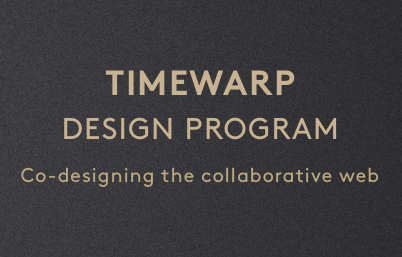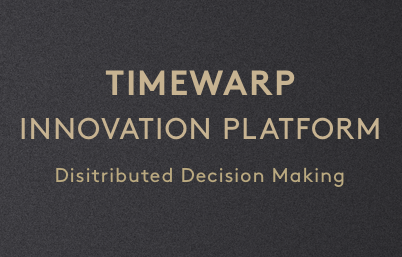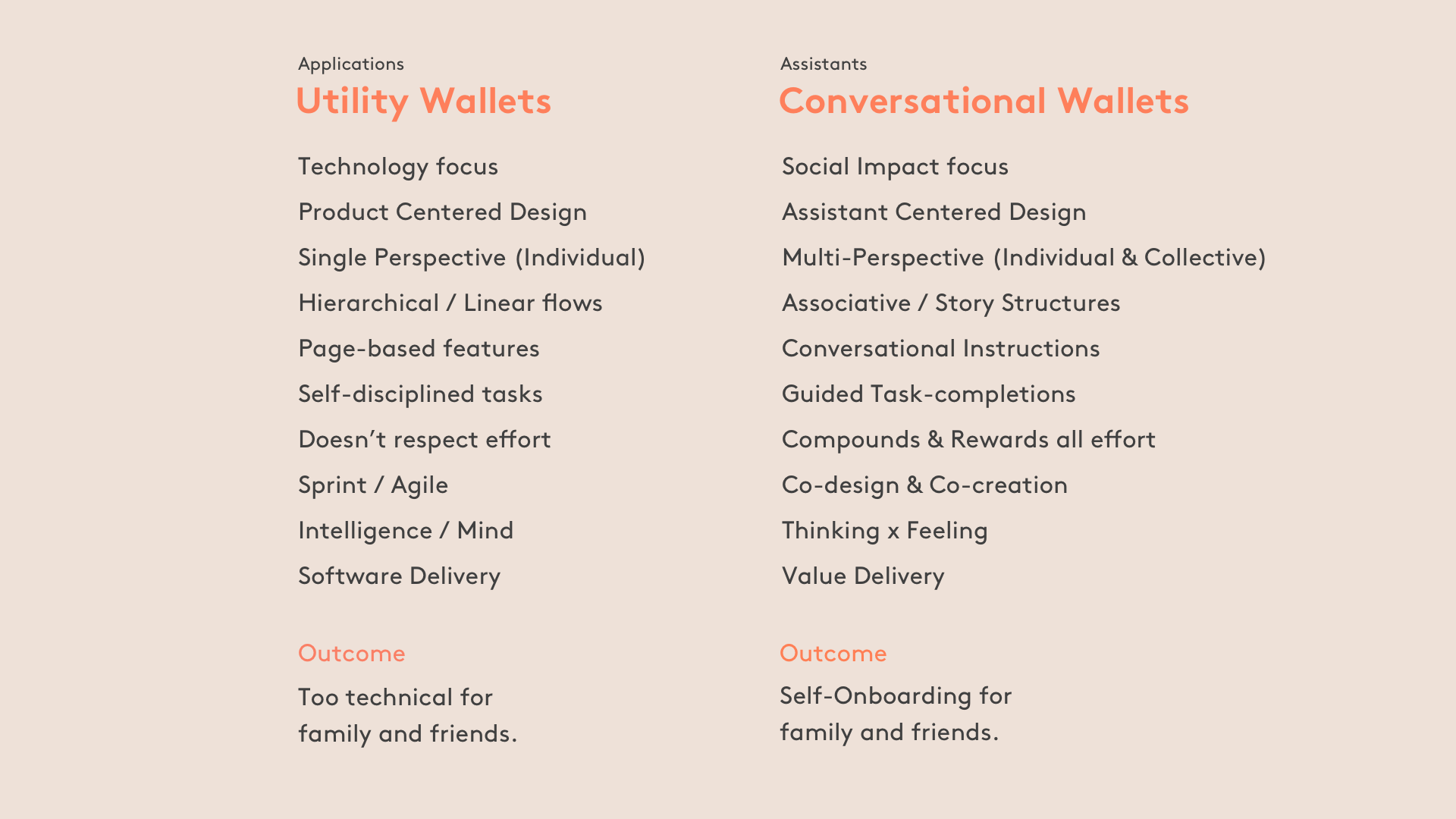A selection of slides and insights from our In-wallet onboarding social design research.
Continue readingCommonism: A Path to Collective Well-being
In a world marked by stark inequality, environmental degradation, and social fragmentation, it is increasingly evident that the current economic and political systems are failing us. Despite the promises of capitalism and neoliberalism, they have led to the concentration of wealth and power in the hands of a few, leaving many behind. It is time for a new vision, a new way of thinking, a new paradigm. It is time for Commonism.
Commonism is not just an economic system, but a way of life. It is based on the principles of solidarity, cooperation, mutual aid, and collective decision-making. It recognizes the interdependence of human beings and the natural world, and seeks to build a society that is equitable, just, and sustainable.
At the heart of Commonism is the idea that the community is the basic unit of society. It is through the community that people can best meet their material, social, and emotional needs. In a communityist society, people work together to create the goods and services they need, rather than relying on the market to allocate resources. This not only ensures that everyone’s basic needs are met, but also fosters a sense of shared purpose and meaning.
Commonism is also characterized by a deep commitment to participatory democracy. Rather than leaving decisions to politicians or bureaucrats, people in a communityist society are directly involved in making decisions that affect their lives. This fosters a sense of ownership and responsibility for the community, and ensures that decisions are made in the best interests of everyone, rather than just a select few.
Another key aspect of Commonism is its focus on sustainability. This means not just reducing our carbon footprint, but also building resilient communities that can adapt to changing circumstances. It involves creating local, self-reliant economies that are not dependent on distant corporations or extractive industries. It means building a society that is rooted in the land, the water, and the natural cycles of life.
In a world that is increasingly divided and polarized, Commonism offers a way forward. By building strong, connected communities that are based on shared values and a sense of common purpose, we can create a more just and equitable society. It is not just an economic system, but a way of being in the world.
In the end, Commonism is about reclaiming our humanity. It is about recognizing that we are all in this together, and that we must work together to create a world that is worthy of our collective aspirations. It is about building a society that is based on love, compassion, and care for one another and the planet. It is a path to collective well-being.
Digital Governance Design
Conversational Governance Design
Co-design and monetize digital storytelling, self-governance, and interactive content, bringing collective decision-making into our digital networks.
Our centralized governance models are too slow, dehumanize society, because they fail to keep people at the center of decision-making.
keywords: Collective Decision Making, Social Ledger technology, 21st-century.
Conversational Governance Design
Social Design Academy is working on co-creation tools and fair data governance models for web3 that are grounded in privacy by design. We are remediating our page-based front-ends into digital conversations, so we created a design language for digital storytelling, self-governance and interactive content.
Timewarp is the design system and innovation platform that humanizes and evolves our software design by bringing decision-making into our digital networks. Conversational Governance Design is based on 10 months of design research and has shown that we can turn our blockchain design patterns into interactive conversations.
Introducing an onboarding and mass adoption approach for cryptocurrency and blockchain by combining utility, education, and hospitality in conversational learning streams.
Remediation of our software takes time, but we are excited to have found a path toward distributed decision-making, as we believe conversational design and conversational governance design are the answer to 21st-century problems.
Webinars: Sign up today and get access to 4 free webinars.
Worksheets: Access to the downloads area.
Price: ₳ TBA / Free for Cardano Project Catalyst funded projects
License & Accreditation
Timewarp - Future Design License
Methods, workshops, exercises, templates and formats to unleash our greatest human potential with non-linear conversational software design.
SOCIAL LEDGER TECHNOLOGY FOR THE 21ST CENTURY.
Our mission is to humanize our wallet design and bring distributed decision making to the the blockchain space.

Educational Program
Conversational Governance Design for the 21st Century. Methods, workshops, exercises, templates, and formats to bring distributed decision-making into our digital networks through using non-linear conversational software design.

Community Innovation Platform
Our current governance models are becoming too slow. Information overload is the biggest problem that makes people passive. Design what matters in a new conversational network, for the people by the people.
Our Rebuild as Assistant course is a systematic approach that results in a social interface layer that connects your audiences and removes feature-creep from your software by asking people what they need.
Let's humanize our software design, and replace page-based design with conversational interaction design and build Virtual Assistants in which you can monetize digital storytelling.
In this course we will rebuild Cardano Wallet software into digital conversations, turning a software application into a Virtual Assistant. This course shows a better way to match the fluidness of sound money with a new front-end approach that is screen agnostic and AR/VR ready.
THIS COURSE IS SPONSORED BY CARDANO PROJECT CATALYST
The In-wallet onboarding educational project and the Rebuild as Assistant course are funded by Project Catalyst.
Therefor this course is free for funded Cardano Catalyst projects that want to make the world a better place.
Social Design Academy promotes the creation of software that benefits society as a whole. The world is still designing software for the individual, it's time that we design software that connects the virtual and real world in meaningful ways. Our mission Humanize and Democratize Web3 design and our motto: "Build Global, Stay local."
Are you not funded by Cardano Project Catalyst? No worries, if you feel you would benefit from real social software design and aim to make the world a better place, reach out and tell us your story.
Five study area’s
Conversation Design Principles
Even Energy Distribution
Story Structures
Data Structures
Container Principle

Niels Kijf Course Leader
Niels is a digital design innovator pur sang and started the Social Design Academy to gather people around real social software design.
He is a pattern recognizer. He has a strong will to design software that benefits society. He learns, teaches, fails and continues. His drive is overwhelming as it is intoxicating.
He doesn’t tolerate mediocrity, but doesn’t aim for perfection either. His matra:
I Listen without disruption
I think in solitude
I design in collaboration
I tell to involve and evolve people
He has a strong believe that designing digital conversations instead of pages, will bring back ethics to digital design.
Join the Timewarp Project
Humanize our software together.
The Timewarp project asks for co-creation across blockchains. Making cryptocurrency wallets ready for family and friends by providing conversational onboarding scripts that deliver truly personalized onboarding experiences.
We still focus on technology, but conversational experience design enables us to combine utility, education, and hospitality in our web3 design, bringing use-cases and mass-adoption to the crypto and blockchain industry.
This means to have to remediate our page-based interaction design into conversational interaction design. Reach out if you want to learn more, or do a session with one of our conversational interface design experts.

LEARNING GOALS
What you will learn in this course
Rebuild as Assistant
This is a self-study course, but all courses have call in events, so you can always ask us question and connect with others.
▮ PREPARATION AND SYSTEMATIC ASSESSMENT
You can only improve your software if you have set clear boundaries for your product segments.
▮ HUMANIZE SOFTWARE DESIGN
Learn to transpose functional software design into a humane experience, and create experience maps instead of features.
▮ WRITE CONVERSATIONAL SCREENPLAYS
Learn to design digital conversations instead of pages, and create a hospitable experience for your audiences.
▮ SCALE YOUR STORY
Instead of providing static flows, start involving people in your Assistant development, and grow into a co-creation ecosystem. learn to design engaging web3 environments and start designing digital conversations today.
THE TIMEWARP PROJECT
Unlearn / Relearn
Unlearn what you know, and jump in the exiting world of vales based assistant design.
Conversational Interaction design enables us to design our software front-end in a consistent way and focus on value creation, instead of feature building.
Digital conversations combine social design with digital product design and raises the bar for software design for web3.
Co-study & Co-design
Learning always works best in teams of 3, find you peer, set your social design challenge and build together.
Weekly Challenges.
From Design Critiques, Design Ping Pong, to UX review, learning is always more fun with practical challenges. Every week we review exceptional work together.
Live Classes
The newest collaboration tools will enable us to show that a design system without a new way of working does not level up your design skills.
Co-intelligence is at the core of social design and in our live-classes we use Social UX and converasational interaction design in tandem. Strap in.
Design in motion
Design must evoke and digital storytelling and wayfinding doesn’t become immersive when things are static on the screen.
Motion design is a core skill at the Social Design Academy. Join us and let put web3 in motion.
Questions?
Have question join our discord server, there is always someone to help you out.
Online Courses
For our online courses we use Learndash, the award winning software for learning at your own pace. All courses have question sessions included, so if you are stuck we are always here to help out.
WHAT OTHERS SAY
Timewarp Design Program
“Designing for Human Activities and Routines really helps in simplifying our software, and deliver true value from the first moment of contact. Designing our own ecosystem and being able to design digital and interactive conversations really helped us to scale our hope narrative. Being able to involve people, instead of talking to people is amazing.”
Next Gen Digital Governance using privacy by design
“Privacy by design is as simple of an insight, as it’s practical to use. Being able to able to keep the data in the users pocket while have an open communication channel with our audiences is truly a revolutionary find in digital product design.”
We didn’t realize how harsh our software was.
“Now we use Conversational Experience Design we see how harsh and impolite our software actually was. Being able to design for time, location and context is real eyeopener. Situational aware Assistants are an exciting new field. It’s strange how blind we can be if we keep ourselves locked up in our offices, or at home for that matter.”
Weekly Conversational Challenges
Conversational Interface Examples
COURSE FORMAT
How you will learn
Online Self study Course
Live clases
Design Challenges
Your Peers / Co-study & Co-design
Time commitment
For who is Timewarp
For brands and agencies that believe in the wellbeing economy.
The is a hands on materials in the TImewarp Design Program are for change makers that want to ideate and design real social software. For people and teams that want to make the world a better place designing software that matters.
This design program is for software designers and developers that want to level up their experience design and build a consistent engaging conversational interfaces that are easy to use, feel natural, and guide people to their goals.
For who is this course
Rebuild as Assistant
This course is for anyone working in the field of Learning and Development or Change and Transformation and needs to add design and facilitation of online processes as an essential skill. Our typical participants include members of Heads of Leadership Development, Chief HR, Transformation Directors, Change Management Leaders, Learning Designers, Facilitators and similar roles who are responsible for the development and delivery of learning experiences or transformative processes.
Sign up for this course
Rebuild as Assistant
This is a self-study course, but all courses have call in events, so you can always ask us question and connect with others.
ADA 499,-
Conversational Wallet Design
HUMANIZE OUR WALLET DESIGN
Conversational Wallet Design.
It’s time to humanize society by bringing conversation design and story-structures to our wallet design.
Our current interaction design misses the story-structures we humans so desperately need. Fractal design, digital storytelling and resumable interactive content are the core component we need to build conversational wallets today. Curious? Read on.
Conversational Wallet Design is the perspective-shift we need.
Our linear page-based interfaces are getting old. AI/ML is on the rise, but if we want to keep a humane society and build the future we want, we need to bring screenwriting to our wallet design.
Our current social platforms only deliver on setup and conflict, but offer no tools for resolution, nor plot twists, this lack of empathy fuels toxicity and frustration, and turns people into the product. The same applies to our wallet design.
Conversational Wallet Design and Distributed Decision making are the answer to the de-humanizing rise of AI. Our future depends on Thinking x Feeling, on empathy, creativity and strategy.
Conversational Wallet Design brings screenwriting to wallet design, resulting in meaningful conversations with self, and/or between groups.
Life evolves through interactions so boosting meaningful participation by rethinking our wallet design should be on everybody's agenda.
Conversation Wallet Design is a human design process that results in conversational apps that declutter and empower people in their daily lives.
It’s time to humanize Society by bringing screenwriting to our wallet design.
Where: Discord / Miro board
Worksheets: Available on Miro board
DESIGN RESEARCH SHOWS
Current
Cryptocurrency Wallets:
1. Separate Utility, Education & Hospitality.
2. Focus on technology and product, yet Havas research shows that customers are seeking more personal and collective benefits to enhance their wellbeing.
3. Miss story-structure (lack before, during and after design thinking), resulting in wallet design patterns that make user-knowledge assumptions and create trust gaps.
4. Cannot easily re-engage with users, resulting in lack of expectation management and after care, causing anxiety and nervousness in users.
5. Facilitate transfer of value, without rethinking how we might deliver conversational technology for real world use-cases.
The outcome;
Incomplete experiences make our current wallets unfit for non-technical family and friends.
Want to make your wallet ready for family and friends, grow adoption through digital storytelling, and deliver true social finance.

In this live-class we turn page-based wallet design patterns into interactive conversations, making our wallets ready for family and friends.
Combining utility, educational and hospitality in interactive conversations results in digital empathy. We will learn to look through three innovation lenses: Utility, Experience and Engagement. And will experience that our current wallet patterns are quite harsh, static, and deliver incomplete experiences.
We have quite some work to do if we want to make our cryptocurrency wallets ready for family and friends. Learning to design experiences with a before, during, after mindset will clear the road to mass adoption.
THIS CONVERSATION DESIGN PROGRAM WAS SPONSORED BY CARDANO PROJECT CATALYST
The In-wallet onboarding project and the Conversational Interaction Design program are funded by Cardano Project Catalyst.
Social Design Academy promotes the creation of wallet software that benefits society as a whole. The world is still designing wallet software for the individual. By giving Everybody an Assistant that keeps a check on your personal data, conversation design facilitates a study of self.
It's time that we design wallet software for the individual and collective, and re-connect our real and virtual worlds in meaningful ways.
Five study area’s
Design Principles for your Wallet Project
Even Energy Distribution
Story Structures & Conversational Wallet Design
Proof of Interaction & Conversational UI Toolkit
Fair Data-Governance

Niels Kijf (Founder)
Niels is a digital design innovator and started the Social Design Academy to gather people around true social finance.
He is a pattern recognizer. He has a strong will to design software that benefits society as a whole. He learns, teaches, fails and continues. His drive is overwhelming as it is intoxicating.
He doesn’t tolerate mediocrity, but doesn’t aim for perfection either. His matra:
I Listen without disruption
I think in solitude
I design in collaboration
I interact to involve and evolve people
He has a strong believe that designing digital conversations instead of pages, will bring back ethics to digital design.
Let's co-design
Conversational Wallets
Contact us today to plan a live-class pilot with your wallet team. We are always hands on, and use co-design methods to learn together. Send us a link to your wallet application you want to review and we'll start learning together in no time.

LEARNING GOALS
What you will learn in this course
Rebuild as Assistant
This is a self-study course, but all courses have call in events, so you can always ask us question and connect with others.
▮ PREPARATION AND SYSTEMATIC ASSESSMENT
You can only improve your software if you have set clear boundaries for your product segments.
▮ HUMANIZE SOFTWARE DESIGN
Learn to transpose functional software design into a humane experience, and create experience maps instead of features.
▮ WRITE CONVERSATIONAL SCREENPLAYS
Learn to design digital conversations instead of pages, and create a hospitable experience for your audiences.
▮ SCALE YOUR STORY
Instead of providing static flows, start involving people in your Assistant development, and grow into a co-creation ecosystem. learn to design engaging web3 environments and start designing digital conversations today.
COURSE FORMAT
Unlearn / Relearn
Unlearn what you know, and jump in the exiting world of need based software design.
Conversational Interaction design enables us to design our software front-end in a consistent way and focus on value creation, instead of feature building.
Digital conversations combine social design with digital product design and raises the bar for software design for web3.
Live Classes
The newest collaboration tools will enable us to show that a design system without a new way of working does not level up your design skills.
Co-intelligence is at the core of social design and in our live-classes we use Social UX and converasational interaction design in tandem. Strap in.
Online Courses
For our online courses we use Learndash, the award winning software for learning at your own pace. All courses have question sessions included, so if you are stuck we are always here to help out.
Co-study & Co-design
Learning always works best in teams of 3, find you peer, set your social design challenge and build together.
Weekly Challenges.
From Design Critiques, Design Ping Pong, to UX review, learning is always more fun with practical challenges. Every week we review exceptional work together.
Design in motion
Design must evoke and digital storytelling and wayfinding doesn’t become immersive when things are static on the screen.
Motion design is a core skill at the Social Design Academy. Join us and let put web3 in motion.
Questions?
Have question join our discord server, there is always someone to help you out.
WHAT OTHERS SAY
Rebuild as Assistant
“Designing for Human Activities and Routines really helps in simplifying our software, and deliver true value. Designing our own ecosystem and being able to design digital conversations really helped us to scale our story. Being able to involve people is amazing.”
Next Gen Digital Governance using privacy by design
“Privacy by design is as simple of an insight, as it’s practical to use. Being able to able to keep the data in the users pocket while have an open communication channel with our audiences is truly a revolutionary find in digital product design.”
We didn’t realize how harsh our software was.
“Now we use Conversational Interaction Design we see how harsh and impolite our software actually was. Being able to design for time, location and context is real eyeopener. Situational aware Assistants are an exciting new field.”
Weekly Conversational Challenges
Conversational Interface Examples
COURSE FORMAT
How you will learn
Online Self study Course
Live clases
Design Challenges
Your Peers / Co-study & Co-design
Time commitment
For who is this course
Rebuild as Assistant
This is a hands on course for change makers that want to ideate and design real social software. For people and teams that want to make the world a better place designing software that matters.
This course is for software designers and developers that want to level up their experience design and build a consistent engaging conversational interfaces that are easy to use, feel natural, and guide people to their goals.
For who is this course
Rebuild as Assistant
This course is for anyone working in the field of Learning and Development or Change and Transformation and needs to add design and facilitation of online processes as an essential skill. Our typical participants include members of Heads of Leadership Development, Chief HR, Transformation Directors, Change Management Leaders, Learning Designers, Facilitators and similar roles who are responsible for the development and delivery of learning experiences or transformative processes.
Sign up for this course
Rebuild as Assistant
This is a self-study course, but all courses have call in events, so you can always ask us question and connect with others.
ADA 499,-










